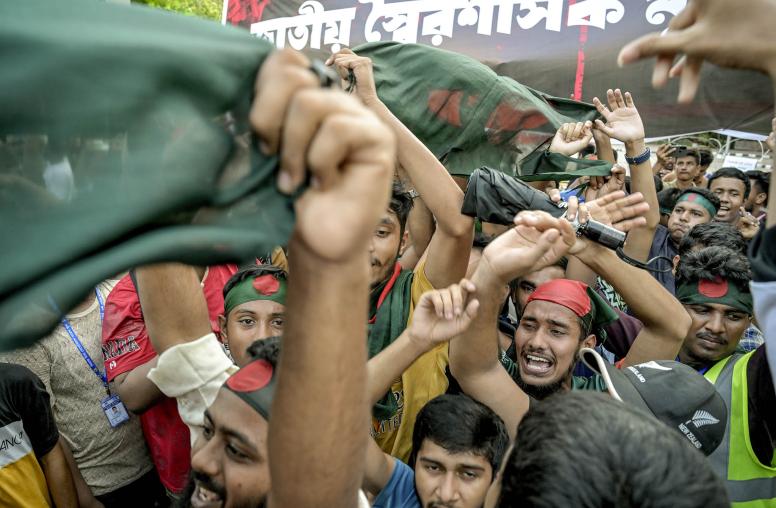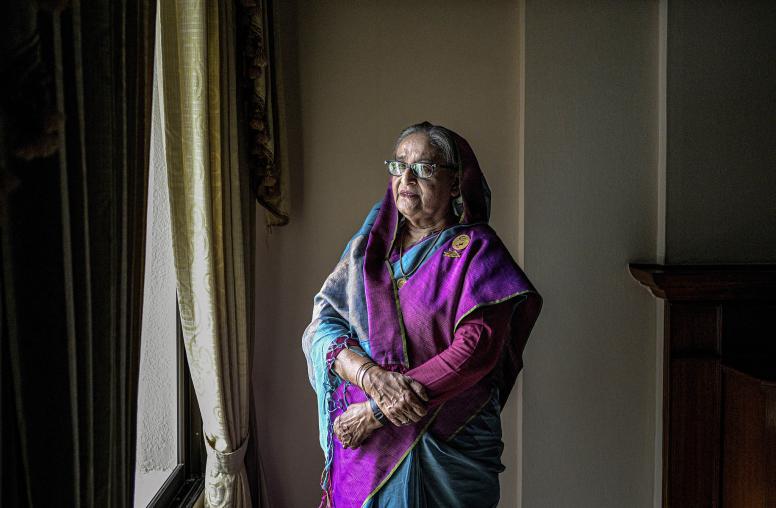 Bangladesh
Bangladesh
Featured Publications

Tamanna Salikuddin on What’s Next for Bangladesh's Democracy
After protests forced longtime Prime Minister Sheikh Hasina to resign earlier this month, Bangladesh’s new interim government is “seeking, at this moment, to grasp that democratic spark” and “set forward the reforms that are going lead to a new political culture” in the country, says USIP’s Tamanna Salikuddin.

Bangladesh’s Revolution Remains Unfinished
On August 5, a student-led revolution toppled Bangladesh’s increasingly repressive prime minister, Sheikh Hasina. After 15 years in power, her government’s sudden and improbable collapse creates the possibility for a new era in Bangladesh. Democratic champions are reinvigorated, but instability and violence will grow in the near term and countervailing forces will likely emerge to blunt progress. Bangladesh’s revolutionary moment is not yet a revolution. Only sustained and deliberate political reform can finish what the students started. The United States can help.

Bangladesh’s Accidental Revolutionaries Topple Sheikh Hasina — What’s Next?
Bangladesh has experienced its most consequential political event in at least two decades. On June 6, one day after Bangladesh’s high court reinstated the country’s job quota system that favored descendants of the 1971 liberation war, about 500 students gathered at Dhaka University to demand its repeal. Two months later, on August 5, Bangladesh’s Prime Minister Sheikh Hasina, who had governed for 15 years, abdicated power and fled the country as a coalition of Bangladeshi students, political opponents and ordinary citizens marched on her residence to demand her resignation. As the prime minister departed for India, the head of the army announced his plan to form an interim government in a televised address.